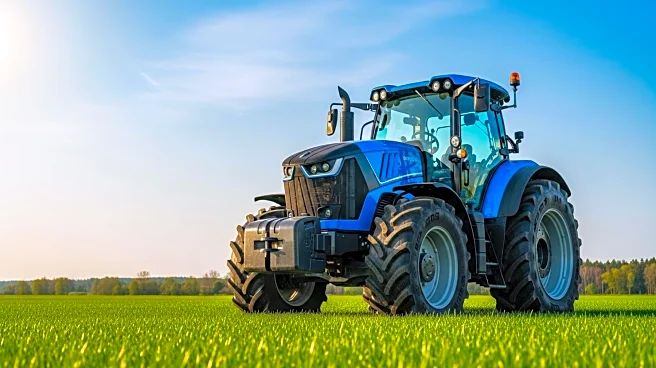What's Happening?
Researchers at Michigan State University are testing electric tractors as a sustainable alternative to traditional diesel-powered machines. Farmers participating in the pilot event provided feedback on the tractors' performance, noting their quiet operation and potential for reducing emissions. While some expressed concerns about battery limitations and costs, the initiative aims to support small farmers interested in sustainability and efficiency.
Why It's Important?
Electric tractors represent a significant shift towards environmentally friendly farming practices. By reducing emissions, they contribute to the global effort to combat climate change. These tractors are particularly appealing to small farmers who prioritize sustainability and may benefit from lower operational costs. The development of electric tractors also aligns with broader trends in agricultural innovation and automation, offering potential for increased efficiency and reduced labor needs.
What's Next?
Further development and testing of electric tractors will focus on overcoming battery limitations and cost barriers. Researchers and manufacturers may explore partnerships to enhance technology and expand market availability. As interest grows, electric tractors could become more common in sustainable farming operations, particularly in regions with supportive policies and infrastructure.
Beyond the Headlines
The adoption of electric tractors could lead to broader changes in agricultural practices, encouraging a shift towards more sustainable and automated farming methods. This transition may also influence economic models within the agricultural sector, as farmers weigh the benefits of reduced emissions against initial investment costs.










